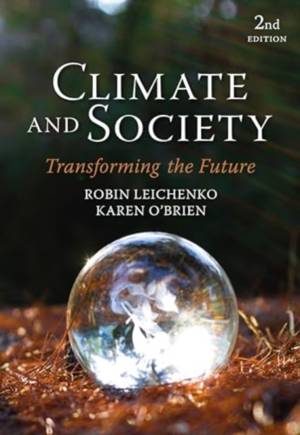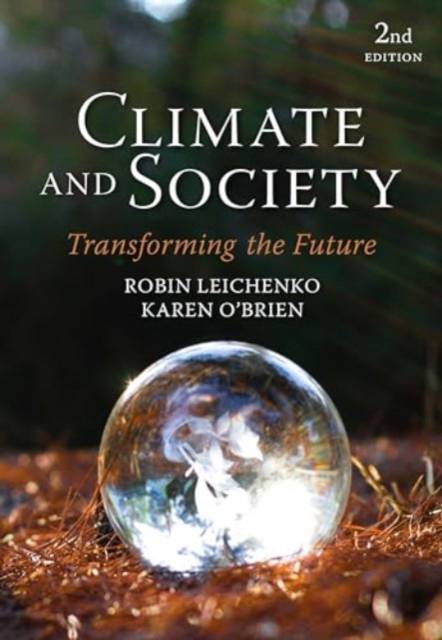
- Afhalen na 1 uur in een winkel met voorraad
- Gratis thuislevering in België vanaf € 30
- Ruim aanbod met 7 miljoen producten
- Afhalen na 1 uur in een winkel met voorraad
- Gratis thuislevering in België vanaf € 30
- Ruim aanbod met 7 miljoen producten
Zoeken
€ 34,45
+ 68 punten
Uitvoering
Omschrijving
This bold and passionate textbook has become a go-to introduction to current and emerging thinking on the social dimensions of climate change, presenting key concepts and frameworks for understanding the multifaceted connections between climate and society.
Using clear language and powerful examples, Robin Leichenko and Karen O'Brien explore the varied social drivers, impacts, and responses to climate change. They highlight the important roles that worldviews, values, and - especially in this updated edition - emotions play in shaping interpretations of climate challenges. They include additional material on climate justice and equity, eco-centric discourses, paradigm shifts, and other topics. Situating climate change within the context of a rapidly changing world, the book demonstrates how dynamic political, economic, and environmental contexts amplify risks, often unequally for different groups based on race, gender, wealth, and location. Yet these shifting conditions also present opportunities for transformative responses: the new edition strengthens its emphasis on individuals' power to influence systems, structures, and cultures.
With updated references, examples, and data, and expanded pedagogical features, this informative and engaging new edition empowers undergraduates across the social sciences and other disciplines with a broader and deeper understanding of climate change and the potential for equitable and sustainable responses.
Using clear language and powerful examples, Robin Leichenko and Karen O'Brien explore the varied social drivers, impacts, and responses to climate change. They highlight the important roles that worldviews, values, and - especially in this updated edition - emotions play in shaping interpretations of climate challenges. They include additional material on climate justice and equity, eco-centric discourses, paradigm shifts, and other topics. Situating climate change within the context of a rapidly changing world, the book demonstrates how dynamic political, economic, and environmental contexts amplify risks, often unequally for different groups based on race, gender, wealth, and location. Yet these shifting conditions also present opportunities for transformative responses: the new edition strengthens its emphasis on individuals' power to influence systems, structures, and cultures.
With updated references, examples, and data, and expanded pedagogical features, this informative and engaging new edition empowers undergraduates across the social sciences and other disciplines with a broader and deeper understanding of climate change and the potential for equitable and sustainable responses.
Specificaties
Betrokkenen
- Auteur(s):
- Uitgeverij:
Inhoud
- Aantal bladzijden:
- 296
- Taal:
- Engels
Eigenschappen
- Productcode (EAN):
- 9781509559299
- Verschijningsdatum:
- 30/07/2024
- Uitvoering:
- Paperback
- Formaat:
- Trade paperback (VS)
- Afmetingen:
- 168 mm x 244 mm
- Gewicht:
- 557 g

Alleen bij Standaard Boekhandel
+ 68 punten op je klantenkaart van Standaard Boekhandel
Beoordelingen
We publiceren alleen reviews die voldoen aan de voorwaarden voor reviews. Bekijk onze voorwaarden voor reviews.











